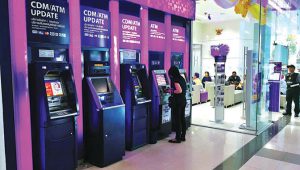Bloomberg
Bank of Thailand is focused on aiding economic growth amid subdued inflation and is less worried about the US Federal Reserve’s monetary actions, Governor Sethaput Suthiwartnarueput said ahead of the central bank’s rate meeting next week.
“Most of our rate trajectory will be dictated by domestic considerations,†Sethaput said, adding inflation, growth and financial system stability will be the key concerns for the central bank.
“It will be less dictated by what happens in terms of Fed’s responses and earlier than expected tapering,†Sethaput said in an interview with Bloomberg Television’s Kathleen Hays, Rishaad Salamat and David Ingles. “We’re a country that is not that
vulnerable to more rapid
tapering by the Fed.â€
While the Bank of Thailand sees an “upside†to its growth estimate of 0.7% this year, the outlook for 2022 — when the monetary authority projects a 3.9% expansion — is fraught with uncertainty, Sethaput said. The forecasts will be reviewed at the December 22 rate meeting.
Thailand’s economy is expected to be Southeast Asia’s worst performer this year, pressured by weak local demand and tourist arrivals. The omicron variant adds more risk to the nascent economic recovery, and the discovery of any new variants in the future could impact the growth estimates as it may derail projected tourist arrivals, he said.
Prime Minister Prayuth Chan-Ocha’s government has put together two borrowing packages worth $44.9 billion in 2020 and 2021 to combat the economic fallout from the pandemic, while the central bank cut its policy interest rate to a record low of 0.5%, where it has kept it for the past 12 meetings.
The central bank and Finance Ministry both have said the economy bottomed out in the July-September quarter, when new Covid cases peaked at more than 20,000 a day. The seven-day average of new infections has dropped steadily since August, to around 3,900 now. At least 69% of Thailand’s population have received at least one dose.
Inflation accelerated to 2.71% in November, the fastest pace since April, on higher oil and vegetable prices. The government has subsidized prices of diesel and cooking gas to lower the burden on the public but the central bank expects price gains to remain near the lower bound of the 1%-3% target range this year and next.
While the headline inflation may see further spike in the coming months, it may “not be long-lasting or permanent,†Sethaput said. With limited pass-through of energy costs with the government subsidizing fuels and its relatively smaller share in the CPI basket, the central bank will stay focused on measures to boost growth and tackling high household debt, he said.
The weak baht also pushes up oil costs for Thailand, a net importer. The baht has weakened more than 10% against the dollar so far this year, the worst performer among major Asian currencies tracked by Bloomberg.
The central bank isn’t targeting a“pre-set level†for baht and the currency is being driven by the fundamentals, Sethaput said. The monetary authority will ensure the currency isn’t too volatile to hurt the economic recovery, he said.
 The Gulf Time Newspaper One of the finest business newspapers in the UAE brought to you by our professional writers and editors.
The Gulf Time Newspaper One of the finest business newspapers in the UAE brought to you by our professional writers and editors.
